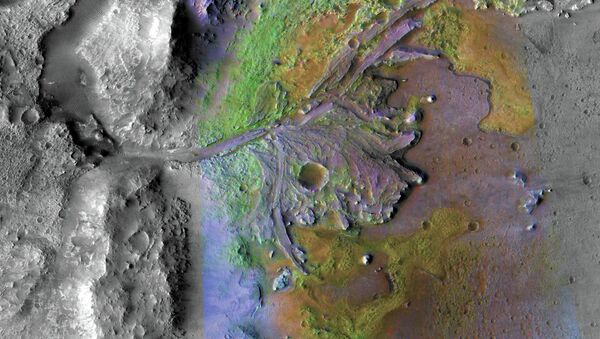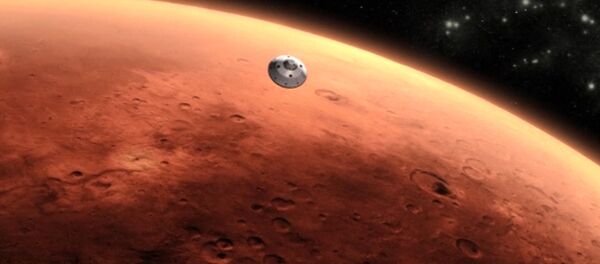Researchers from the Brown University studied detailed geological and mineralogical maps of the area, taken by NASA's Mars Reconnaissance Orbiter. They identified several channels that could have brought water to the lake and beyond. Later studies revealed deposits full of clay minerals stored in the channels.
Ancient Martian lake system records two water-related events https://t.co/Li7t3ftqs9
— Brown University (@BrownUniversity) 25 Март 2015
The findings, published in the Journal of Geophysical Research: Planets, suggest that there were two separate instances of water activity in Jezero. First, alteration minerals formed in the watershed, then they were transported into the lake.
Researchers are unsure when the latest water activity at Jezero took place, saying it ended approximately 3.8 billion years ago. It also remains unclear how long liquid water could have existed on the surface of the barren planet. The findings suggest that water activity largely took place in the subsurface crust.
Slopes of a Crater to the North of Jezero Crater | BEAUTIFUL MARS http://t.co/Ri9erwKdTU @HiRISE.
— Mizuho.Iwata. (@iwatamizuho) 18 декабря 2014
The crater is already on NASA's top five list of possible landing sites for the new science rover mission scheduled to be launched in 2020.




